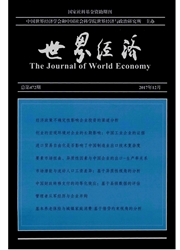

 中文摘要:
中文摘要:
本文利用中国2004至2009年制造业企业微观数据和286个地级以上城市数据,研究了经济集聚对制造业企业工资水平的影响。以历史集聚特征作为工具变量的经验研究发现,就业密度对制造业企业职工工资的影响呈倒U型,同时市场潜能对制造业工资具有正影响。进一步根据企业区位进行分组分析发现,就业密度对东部地区企业工资的影响呈倒U型,而对中西部地区的企业工资水平未见显著影响;市场潜能对不同分组的企业工资水平都具有正向作用。最后,本文从经济集聚视角就缩小工资差距提出了相应的政策建议。
 英文摘要:
英文摘要:
Based on Urban Economics and New Economic Geography, this paper studies the influ- ence of agglomeration economy on wage disparity of manufacturing workers with Chinese manufacturing firm level data and city-level data during 2004 to 2009. With employment density and market potential reflecting agglomeration and historical agglomeration features as instrumental variables, empirical analysis shows that the effect of employment density on wage appears inverted U-shape, while market potential can enhance wage. Further grouping results indicate that the relations between employment density and wages of eastern firms, midwest firms appear respectively inverted U-shape and non-significant. While market potential has apositive correlation with wages of both groups. The conclusions provide both theoretical basis and empirical evidence for policy differentiation to narrow the weahh gap from agglomeration perspective.
 同期刊论文项目
同期刊论文项目
 同项目期刊论文
同项目期刊论文
 期刊信息
期刊信息
